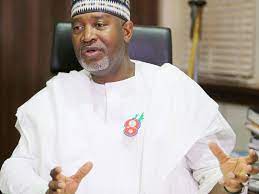Nigeria Air: Bringing Nigeria Closer to the World, but is it Time?

At the last Federal Executive Council (FEC) meeting, the Minister of Aviation, Hadi Sirika, among other things, announced that the country’s delayed national air carrier, Nigeria Air, is planned to launch on or before April 2022. In terms of the ownership structure of the proposed airline, the government will have an equity stake not exceeding 5%, Nigerians will hold 46%, and the remaining 49% will be reserved for strategic equity partner(s), including foreign airlines and financial institutions, etc. The proposed airline was initially planned to begin in 2018 but plans stalled.
Once upon a time, the Nigerian aviation activity was never in the news without mentioning the defunct Nigeria Airways, which used to be the country’s national carrier and at some point, was the only airline in the country. However, the once bright Nigeria Airways abandoned the skies due to poor corporate governance and mismanagement, leading to a financial crisis, which made it cease operations in 2003. Following an extended period without a functioning national carrier, it dawned on the government to encourage private sector participation. This led to the joint venture partnership between the Virgin Group and local investors in 2004, birthing Virgin Nigeria Airways, which replaced the former Nigeria Airways. Amidst changing names from Virgin Nigeria to Nigerian Eagle Airlines and, finally, to Air Nigeria, the partnership was unsuccessful due to persistent government interference, leading to a collapse in 2012.
To a large extent, the news to float the proposed Nigeria Air can be considered positive, given that the national carrier stands to serve the continent’s most populous nation. At a time when the African Continental Free Trade Agreement (AfCFTA) has been implemented, it bodes well for the country to facilitate a faster flow of goods and services to other African markets. Beyond that, the proposed national airline also adds Nigerian airports as a hub to serve as central points for passengers catching connecting flights.
That said, from an investor’s perspective, providing a compelling business case during the procurement stage will be needed to get the much-needed investments considering the history of failure that has trailed previous national flag carriers. In essence, investors will be keen to understand the extent of government participation and regulatory clauses in the project. While the Minister did not state the estimated cost of the proposed airline at the FEC meeting, we recall that the initial financing requirement of the delayed new airline was estimated at US$300m in 2018. It is safe to assume that the capital outlay should be higher currently.
The timing of the project, however, appears inopportune, as the emergence of the Omicron Covid-19 variant is already igniting travel bans across the world. This will possibly dampen the revenue assumptions if operations commence at the said date (April 2022). Also, given the stages required to complete the transaction process, we believe April commencement date may not be possible, more so as 2022 is a pre-election year that is usually characterised by a focus on election campaigns to the detriment of project completion. We see no need for any hurry. In our view, the government needs to take effective steps to identify and prevent the obstacles that have led to previous failures.
Adapted from proshare




